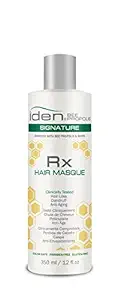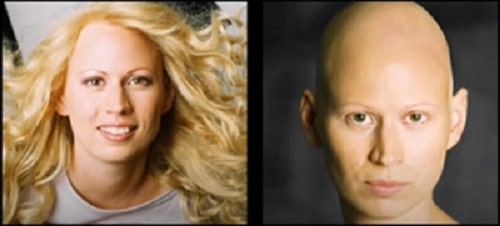
Almost every month, new articles come out that promote yet another natural remedy to treat hair loss. Most of the time, there is limited scientific evidence backing the benefits of the said remedy on hair growth.
However, every now and again, a natural remedy with some scientific validity does pop up. The latest is bee propolis (or bee glue), which has a number of health benefits.
You can buy a number of such products on Amazon in lotion, hair masque (image on right) and hair loss shampoo forms.
Propolis and Hair Growth
Scientists (led by Dr. Ken Kobayashi) in Japan have found that using a resinous product made by bees called propolis on mice whose hair had been shaved or waxed resulted in faster hair regrowth in comparison to shaved or waxed mice on whom no such product was applied.
Upon initially reading this summary, I was not that impressed, since all that propolis seems to do is increase the pace of growth of already existing hair. And of course the results have only been shown on mice, a curse of most hair loss research ever conducted.
However, as I read more about this study, I changed my mind regarding its lack of any significant importance. Apparently, propolis contains anti-inflammatory compounds. In fact the study authors seem to suggest that all hair loss has an inflammatory component to it. Perhaps this bodes well for all the recent excitement about new miracle alopecia areata treatment related anti-inflammatory drugs potentially also working for androgenic alopecia? We can definitely hope.
Perhaps of most importance, the scientists also noticed that after the topical application of propolis on the mice “the number of special cells involved in the process of growing hair increased.” Propolis seems to stimulate hair growth by inducing hair keratinocyte proliferation. This is quite extraordinary, and further supports the intelligence of many of our ancestors who used propolis for quite a few medical applications. It seems like this unique ingredient can be purchased at most health food stores and pharmacies.
Several hair products with bee propolis in them have good reviews on Amazon, including Iden Bee Propolis Treatment and Iden Bee Nourished Shampoo & Conditioner Duo Pack.
Update: A new study from Iran in 2016 also finds propolis to have beneficial hair growth properties. Also make sure to read this summary on its various pharmacological benefits.
